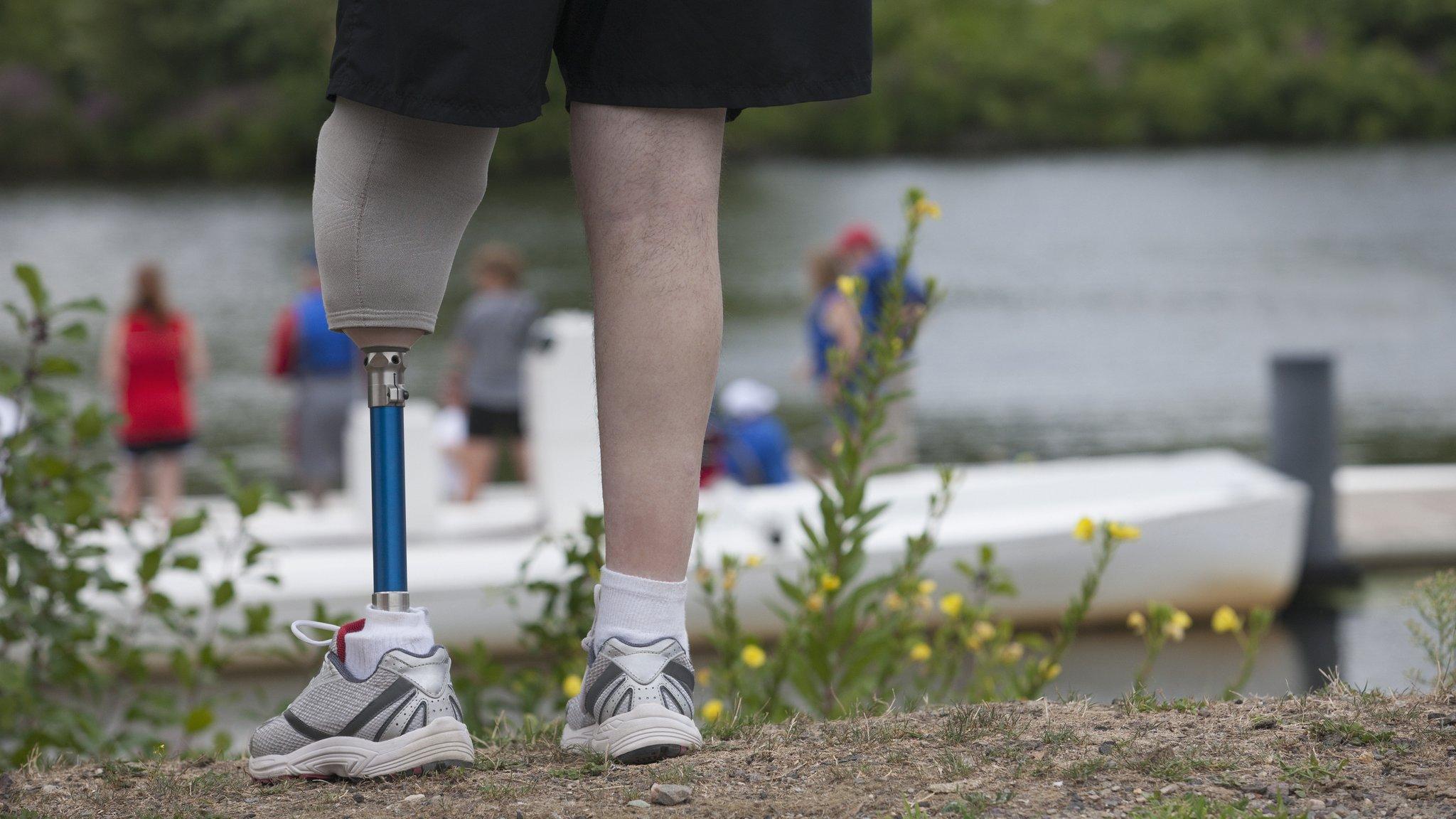Can Jamie Oliver help Bristolians cut down on sugar?
- Published
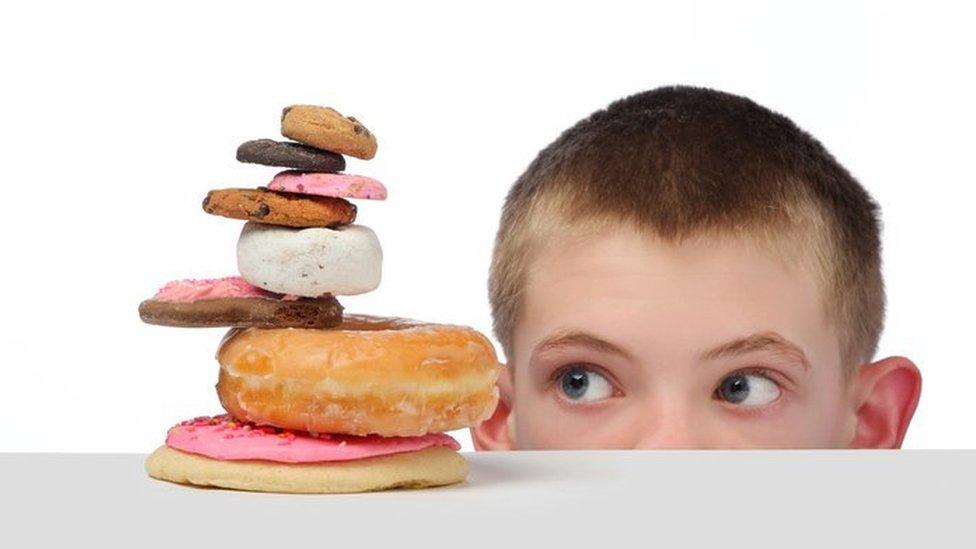
One in four children in Bristol have tooth decay by the age of five
Across Britain millions of people are joining gyms, giving up alcohol or going on diets in a New Year health drive. But one city is trying to cut sugar on a massive scale. Bristol has joined a campaign led by TV Chef Jamie Oliver to reduce sugar consumption, the first large city in the UK to do so. Could it work?
Bristol has a sweet tooth.
By the age of five, almost one in four children in the city have tooth decay, according to statistics from Public Health England. A third of 10-year-olds are classed as clinically overweight.
Diabetes affects more than 20,000 Bristolians, 90% of whom have type 2 - usually linked to poor diet and inadequate exercise. In the last three years, 227 people in the city had a limb amputated because their diabetes was out of control. The amputation rate is nearly double the national average.
And while the city's tooth decay and obesity statistics are no worse than the national average, Bristol's Public Health department is worried by the data.
"We are really in the first era where it's possible that our children will die earlier than we will," says consultant Sally Hoggs. "I think that's scary - and we need to address it."
Health officials have been telling people for years to eat less sugar and fat, with little discernible effect. Across the UK, 25% of adults are now clinically obese, according to government figures. A further 37% are overweight.
In Westminster, ministers are concentrating on a new sugar tax, to be levied on fizzy drinks with high sugar levels. It will be introduced in 2018, adding about 8p to a can of full sugar Coke, Pepsi or Irn-Bru.
But in Bristol, they want to get going now. And they hope the city can follow the example of some people who have achieved dramatic results.
Becky Murray quit sugar to beat diabetes
Eighteen months ago, Becky Murray's GP told her she had developed type 2 diabetes. The 46-year-old from Brislington, in south Bristol, had been trying to lose weight for 20 years, but the diagnosis changed everything.
"I'd kind of deluded myself that it wouldn't happen, but it really caught me up short and I thought 'This is reality. I have to do something about it', or else I would be on medication for the rest of my life," she says.
Mrs Murray knew how serious diabetes can be, because her father has had the condition for 20 years.
"I knew I would possibly have eye problems or sleep problems," she adds. "Some people end up having to have limbs amputated - which is a horrific thought - but it is a reality for some people."
Mrs Murray took decisive action. She cut all sugar from her diet. "I stopped cakes and pastries, of course, fizzy drinks, chocolate, everything. And I started eating more fruit and vegetables."
She also took up running. At first, it was just short jogs round the block, then gradually she built up to running for an hour.
Three months later, Mrs Murray went back to her GP, and got some remarkable good news. Her blood sugar was normal. She had beaten diabetes.
"I felt great, a real sense of victory. And I'm not going back now to the way I lived before," she says.
Her dramatic recovery is rare, but not unique. Unlike other conditions, diabetes can be reversed if the amount of sugar in the bloodstream is brought under control.
Dr Martin Jones, who chairs the clinical commissioning group across Bristol, hopes others will be inspired by Mrs Murray's example.
"Diabetes is exciting, because we can help to prevent it, by living more healthily, taking more exercise," he says.
"But also when we get it we can actually reverse it. Managing our sugar intake, exercising effectively, can reduce the need to take drugs - even eradicate it altogether."
Reducing sugar for one person facing a serious illness is one thing. Cutting it across a whole city is a much harder challenge. So what are Bristol's health officials doing?
While they wait for national laws to change, their focus is on information. They believe that if people knew how much sugar was in everyday products, they would think twice. A single can of cola has nine teaspoons, about 33g, which is more than the entire daily recommended intake for an adult (30g).
That's why ministers want to tax sugary drinks, starting in 2018. In the meantime though, cafes in Bristol are being invited to try a voluntary levy, adding 10p to a can of fizzy drink.
Jamie Oliver's restaurants already do this, and Bristol's Public Health department hope others in the city will follow suit.
Foods sold as healthy can be sugary as well. Low fat strawberry yoghurt, for instance, can have 19g of sugar in a single serving - equivalent to five sugar lumps.
Savoury foods can surprise people too. A can of tomato soup for two people contains about 20g of sugar.
Dr Jones says people are rarely aware of where sugar is hidden.
"Think about our diet 50 or 100 years ago," he adds. "People ate much less sugar and there was much less diabetes in the population, much less obesity."
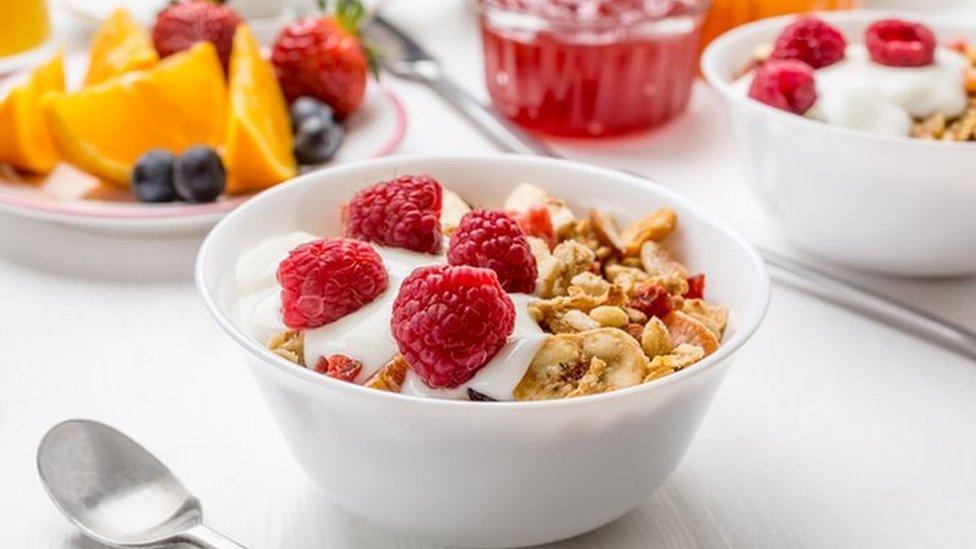
Even so-called healthy food can contain a lot of hidden sugar.
The Sugar Smart campaign has signed up some big players. Ashton Gate is the city's biggest sports stadium, home to Bristol City Football Club and Bristol Rugby.
Later in January, fans at home matches will see a video by Jamie Oliver urging them to drink water instead of fizzy drinks. On the drinks stands around the stadium, water and low sugar drinks will be pushed to the front, while full sugar cans are kept behind the counter.
Students at the University of the West of England are joining the campaign too. Later in 2017, the student canteen will be running promotions with water or low sugar drinks as part of meal deals, and low sugar snacks by the tills.
At a sports and leisure centre in north Bristol, a healthy vending machine will be installed to help people switch away from crisps and fizzy drinks after a swim.
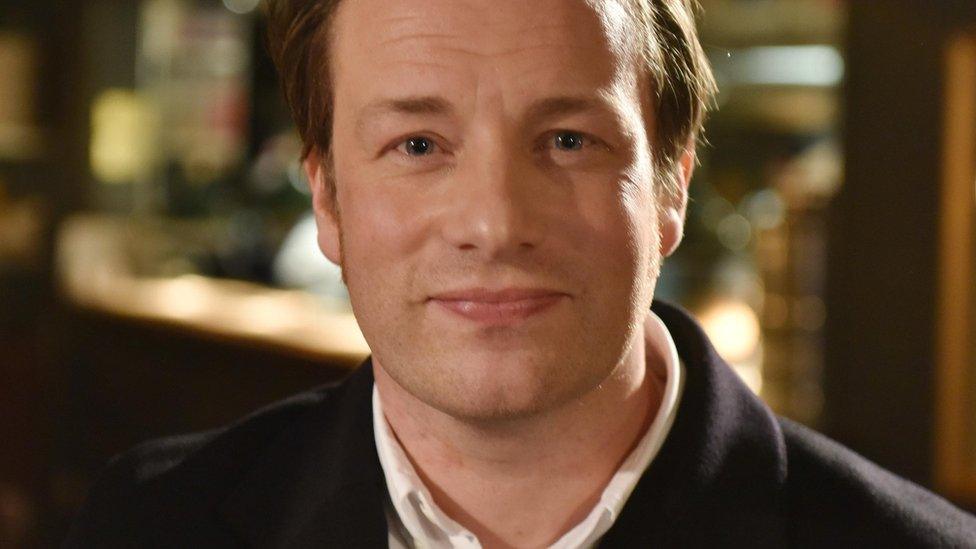
Bristol is the first city to roll out TV Chef Jamie Oliver's sugar campaign
So can leaflets and voluntary taxes work?
Before the roll out in Bristol, the Jamie Oliver Foundation tested the ideas in Brighton and Hove. Staff contacted 150 cafes and food outlets, and 59 started putting free water on tables for customers. Thirteen cafes changed their menus to reduce sugar in their recipes.
That is only 10%, and some wonder if a campaign that just puts free drinking water on tables amounts to much.
The voluntary sugar tax was trialled at Brighton University, where 10p was added to a can of full sugar fizzy drink. Sales fell 16%.
Jo Ralling, who runs the SugarSmart campaign at Jamie Oliver's Food Foundation, says these small changes prove it can work.
"It makes you stop and think, why is this drink more? And then they decide to buy the low sugar option, or water - which is best of all," she says.
Campaigners know it will be tough to persuade people to change their diets before they are ill. Becky Murray admitted her doctors had told her several times to lose weight, but only the actual diagnosis of diabetes made her take action. Now, she cannot imagine going back.
"I've actually lost the taste for sugar completely," she says. "It tastes wrong now, like something you don't want to put in your mouth."
- Published3 January 2017
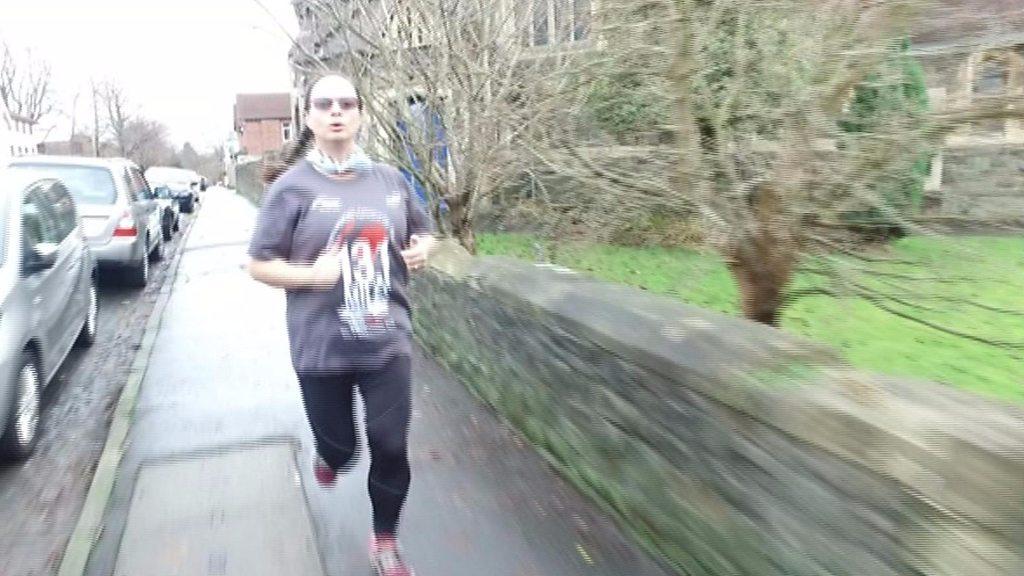
- Published17 July 2015
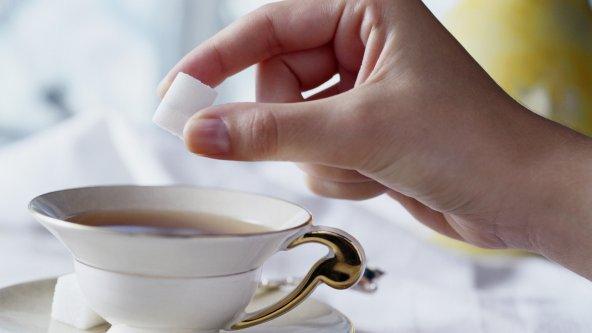
- Published9 September 2016
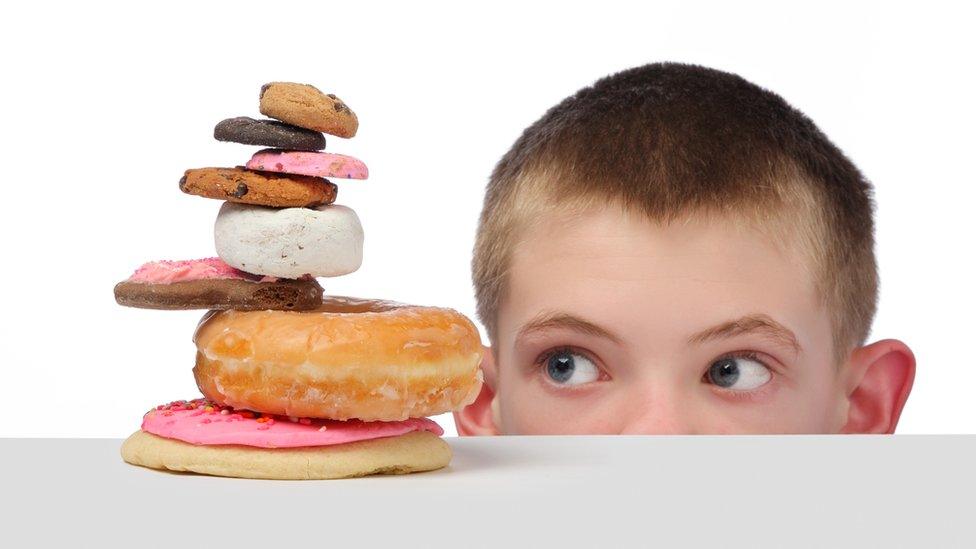
- Published5 October 2015
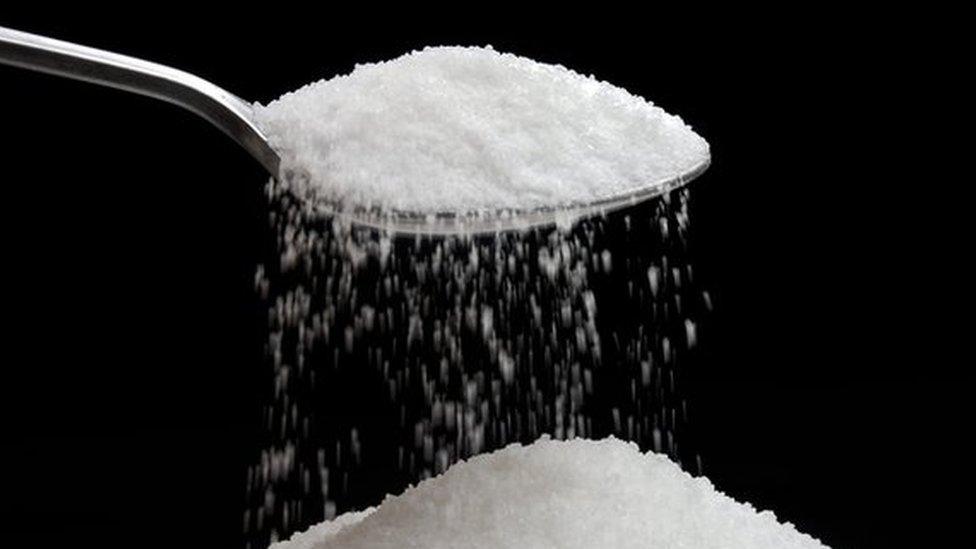
- Published22 November 2016
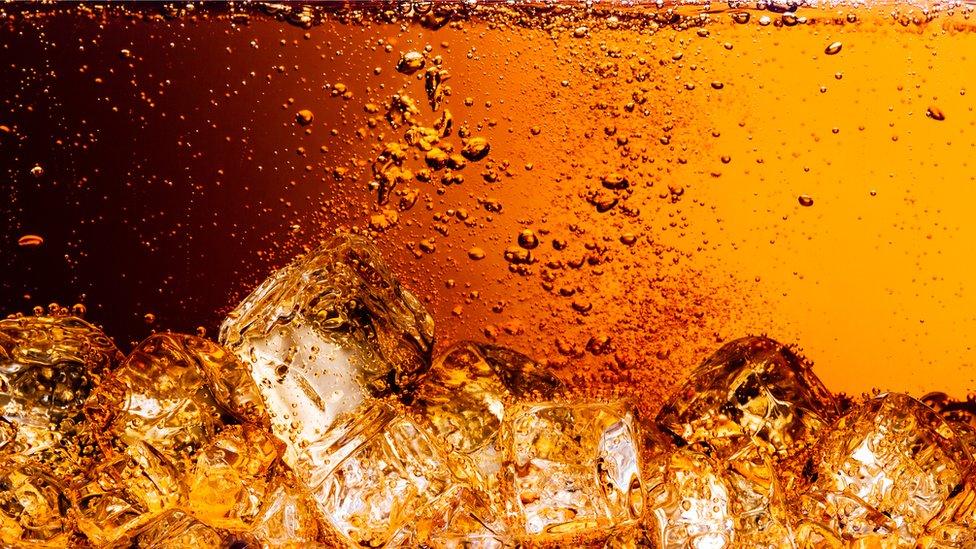
- Published16 March 2016
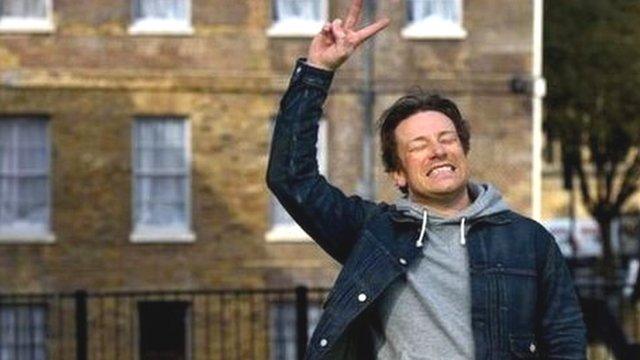
- Published16 March 2016
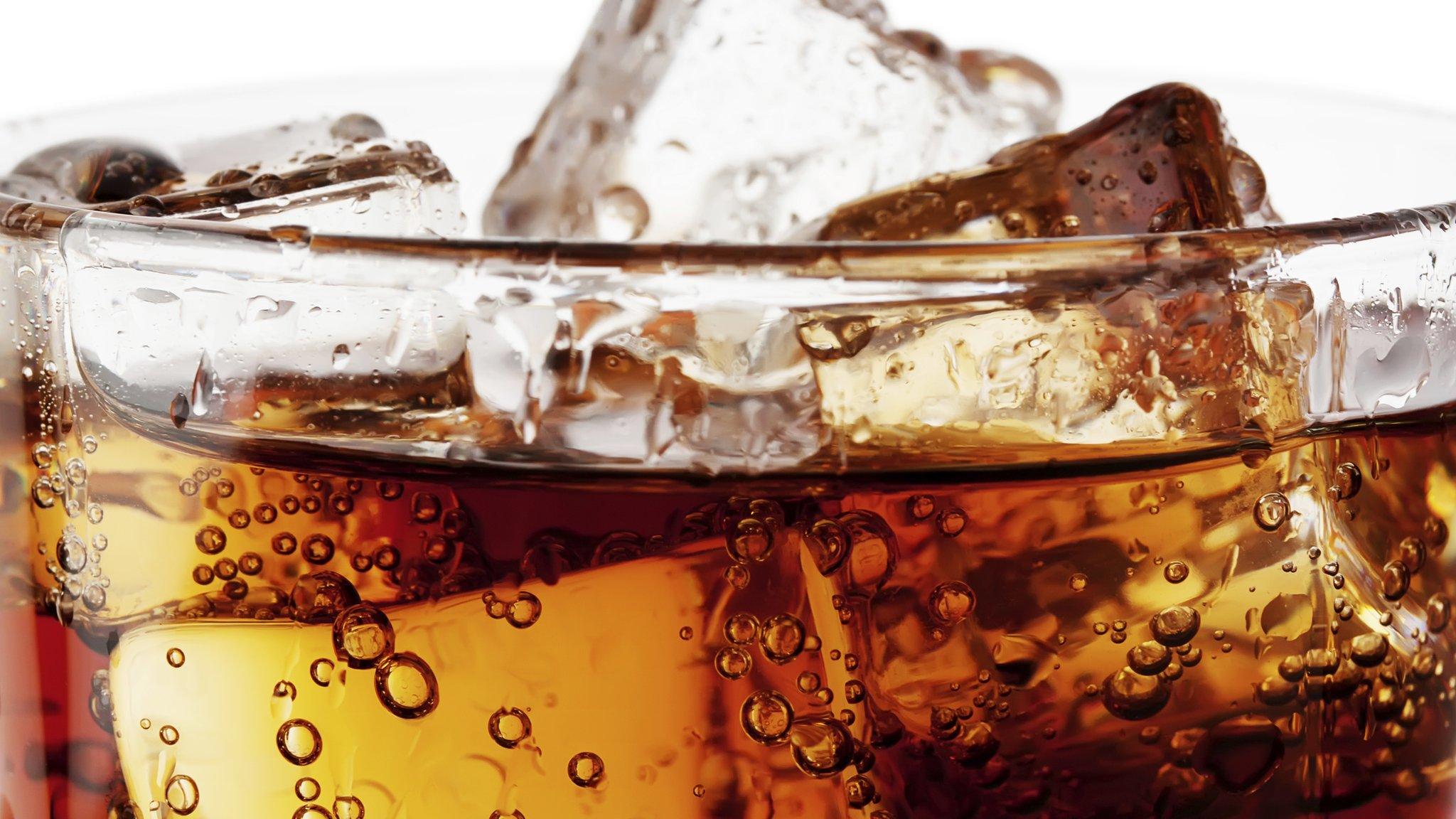
- Published24 October 2016
